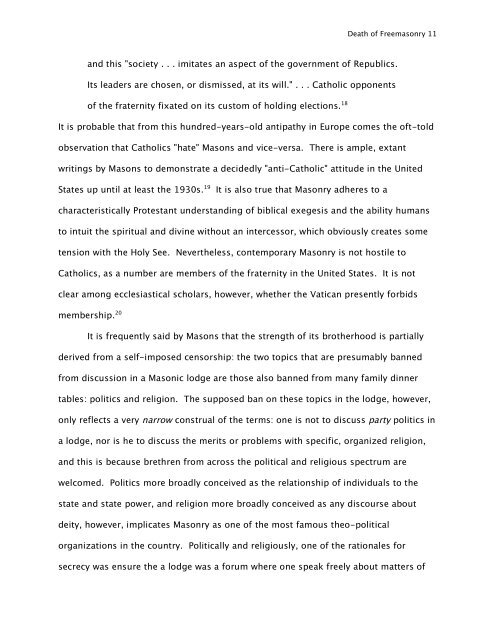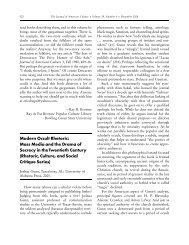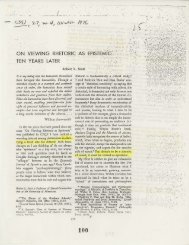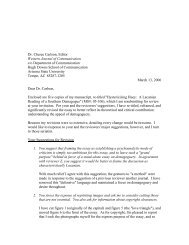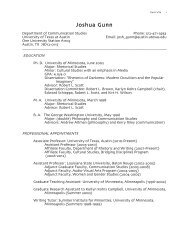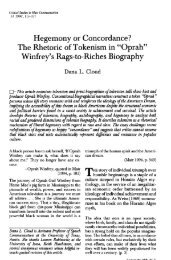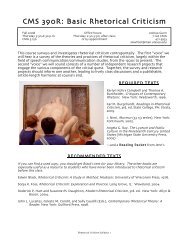The Rhetoric and Death of U.S. Freemasonry In this essay I argue ...
The Rhetoric and Death of U.S. Freemasonry In this essay I argue ...
The Rhetoric and Death of U.S. Freemasonry In this essay I argue ...
You also want an ePaper? Increase the reach of your titles
YUMPU automatically turns print PDFs into web optimized ePapers that Google loves.
<strong>Death</strong> <strong>of</strong> <strong>Freemasonry</strong> 11<br />
<strong>and</strong> <strong>this</strong> "society . . . imitates an aspect <strong>of</strong> the government <strong>of</strong> Republics.<br />
Its leaders are chosen, or dismissed, at its will." . . . Catholic opponents<br />
<strong>of</strong> the fraternity fixated on its custom <strong>of</strong> holding elections. 18<br />
It is probable that from <strong>this</strong> hundred-years-old antipathy in Europe comes the <strong>of</strong>t-told<br />
observation that Catholics "hate" Masons <strong>and</strong> vice-versa. <strong>The</strong>re is ample, extant<br />
writings by Masons to demonstrate a decidedly "anti-Catholic" attitude in the United<br />
States up until at least the 1930s. 19<br />
It is also true that Masonry adheres to a<br />
characteristically Protestant underst<strong>and</strong>ing <strong>of</strong> biblical exegesis <strong>and</strong> the ability humans<br />
to intuit the spiritual <strong>and</strong> divine without an intercessor, which obviously creates some<br />
tension with the Holy See. Nevertheless, contemporary Masonry is not hostile to<br />
Catholics, as a number are members <strong>of</strong> the fraternity in the United States. It is not<br />
clear among ecclesiastical scholars, however, whether the Vatican presently forbids<br />
membership. 20<br />
It is frequently said by Masons that the strength <strong>of</strong> its brotherhood is partially<br />
derived from a self-imposed censorship: the two topics that are presumably banned<br />
from discussion in a Masonic lodge are those also banned from many family dinner<br />
tables: politics <strong>and</strong> religion. <strong>The</strong> supposed ban on these topics in the lodge, however,<br />
only reflects a very narrow construal <strong>of</strong> the terms: one is not to discuss party politics in<br />
a lodge, nor is he to discuss the merits or problems with specific, organized religion,<br />
<strong>and</strong> <strong>this</strong> is because brethren from across the political <strong>and</strong> religious spectrum are<br />
welcomed. Politics more broadly conceived as the relationship <strong>of</strong> individuals to the<br />
state <strong>and</strong> state power, <strong>and</strong> religion more broadly conceived as any discourse about<br />
deity, however, implicates Masonry as one <strong>of</strong> the most famous theo-political<br />
organizations in the country. Politically <strong>and</strong> religiously, one <strong>of</strong> the rationales for<br />
secrecy was ensure the a lodge was a forum where one speak freely about matters <strong>of</strong>


